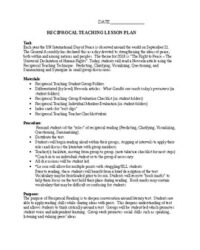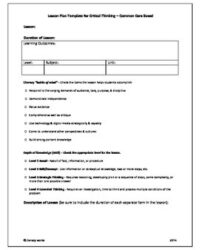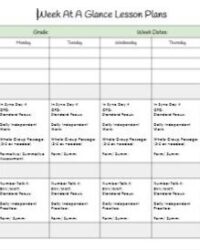Ever felt like your classroom discussions could go deeper, truly engaging students in critical thinking and respectful debate? That’s where the magic of a Socratic seminar comes in. It’s not just a discussion; it’s a structured conversation that empowers students to lead their own learning, grapple with complex texts, and articulate their thoughts with clarity. Crafting an effective Socratic seminar, however, requires thoughtful preparation, and that’s precisely why having a solid socratic seminar lesson plan template can be an absolute game-changer for educators like you.
Imagine walking into your classroom knowing you have a clear roadmap for fostering meaningful dialogue. A well-designed template simplifies the planning process, ensures all necessary components are considered, and helps you guide students toward genuine inquiry rather than just a superficial chat. It’s about setting the stage for profound intellectual exploration, allowing students to construct understanding collaboratively, and strengthening their analytical and communication skills in a dynamic environment.
The Core Components of an Effective Socratic Seminar
To truly unlock the power of student-led discussion, your Socratic seminar needs several foundational elements. It begins long before the actual conversation, with careful selection of texts and the development of rich, open-ended questions that provoke thought rather than simple recall. Then, during the seminar itself, the focus shifts to creating a safe and equitable space where every voice feels valued and heard, and where students take ownership of the intellectual heavy lifting. Finally, the learning extends beyond the spoken words, often culminating in reflection that solidifies understanding and self-assessment.
Preparation is key, not just for you but for your students too. Before stepping into the seminar circle, students need to engage deeply with the chosen text, marking passages, identifying key themes, and formulating their own initial questions and insights. This pre-reading and annotation phase is crucial for ensuring that participants come to the discussion well-equipped to contribute substantively, moving beyond surface-level observations to more nuanced interpretations and arguments. It sets the stage for a truly generative conversation.
Crafting Compelling Guiding Questions
The quality of your Socratic seminar hinges significantly on the questions you pose. These aren’t just any questions; they are carefully constructed inquiries designed to encourage exploration, challenge assumptions, and foster deeper understanding. Avoid questions with single right answers. Instead, aim for questions that are ambiguous, require textual evidence for support, and invite multiple perspectives. Think about the big ideas, the underlying tensions, or the ethical dilemmas present in the text. These types of questions will truly open up the discussion.
- Factual questions: To ensure basic understanding of the text.
- Interpretive questions: To explore the meaning of specific passages or events.
- Evaluative questions: To prompt students to make judgments or assess characters’ actions.
- Universal questions: To connect the text’s themes to broader human experiences.
Student Preparation and Roles
Empowering students in a Socratic seminar means giving them clear responsibilities. Beyond just reading the text, they might have specific roles to play that ensure the discussion remains productive and inclusive. These roles can rotate, allowing students to experience different facets of managing a complex conversation. Whether they are speaking, listening, or tracking the flow, each student contributes to the collective success of the seminar.
- Outer circle observers: Students who track participation, identify key ideas, or note discussion patterns.
- Inner circle discussants: Students actively participating in the conversation.
- Question makers: Students who prepare their own open-ended questions beforehand.
- Textual evidence keepers: Students responsible for reminding the group to cite specific passages.
Implementing Your Socratic Seminar Lesson Plan Template with Ease
Once you have your socratic seminar lesson plan template ready, the next step is bringing it to life in your classroom. Remember that a template is a guide, not a rigid script. Be prepared to adapt and be flexible as the discussion unfolds. The beauty of Socratic seminars lies in their organic nature, allowing student inquiry to steer the conversation in unexpected but often fruitful directions. Your role transitions from lecturer to facilitator, gently nudging, clarifying, and ensuring that the discussion remains respectful and focused on the text.
Consider how you can differentiate the experience for various learners and subject matters. While the core principles remain consistent, a seminar in a literature class might focus more on character motivation and symbolism, whereas one in a history class could delve into the motivations behind historical events or the interpretation of primary sources. The template provides the framework, but your creativity and understanding of your students will truly personalize the experience, ensuring that every student has an opportunity to engage deeply, regardless of their prior experience with such discussions.
Don’t be afraid to refine your template after each seminar. Reflect on what worked well, what challenges arose, and how you might tweak the structure or your guiding questions for next time. Each seminar is a learning experience for everyone involved, and continuous improvement will only make your template more robust and effective. The goal is to cultivate a classroom culture where deep thinking, active listening, and respectful dialogue are the norm, and your template is a powerful tool in achieving that.
- Introduce the seminar process clearly: Explain expectations and roles beforehand.
- Establish ground rules: Emphasize respectful listening and evidence-based arguments.
- Start with a strong opening question: Something that immediately invites diverse perspectives.
- Practice active listening: Encourage students to build on each other’s ideas.
- Facilitate, don’t lecture: Guide the conversation with follow-up questions, not direct answers.
- Allow for silence: Give students time to think and formulate their responses.
- Provide clear assessment criteria: How will students be evaluated for participation and preparation.
- Debrief thoroughly: Discuss both the content and the process of the seminar afterwards.
Embracing a structured yet flexible approach to Socratic seminars can profoundly transform your classroom. By using a well-designed template, you’re not just organizing a discussion; you’re cultivating a space where students become active architects of their own understanding, developing crucial skills in critical thinking, communication, and collaboration that extend far beyond the classroom walls. It’s an investment in deeper learning that yields significant returns.
So, take the leap. Empower your students to explore complex ideas, challenge their own assumptions, and discover the joy of intellectual inquiry. The tools are within your reach to facilitate these enriching experiences, fostering a vibrant learning community where curiosity thrives and every voice contributes to the collective wisdom.


